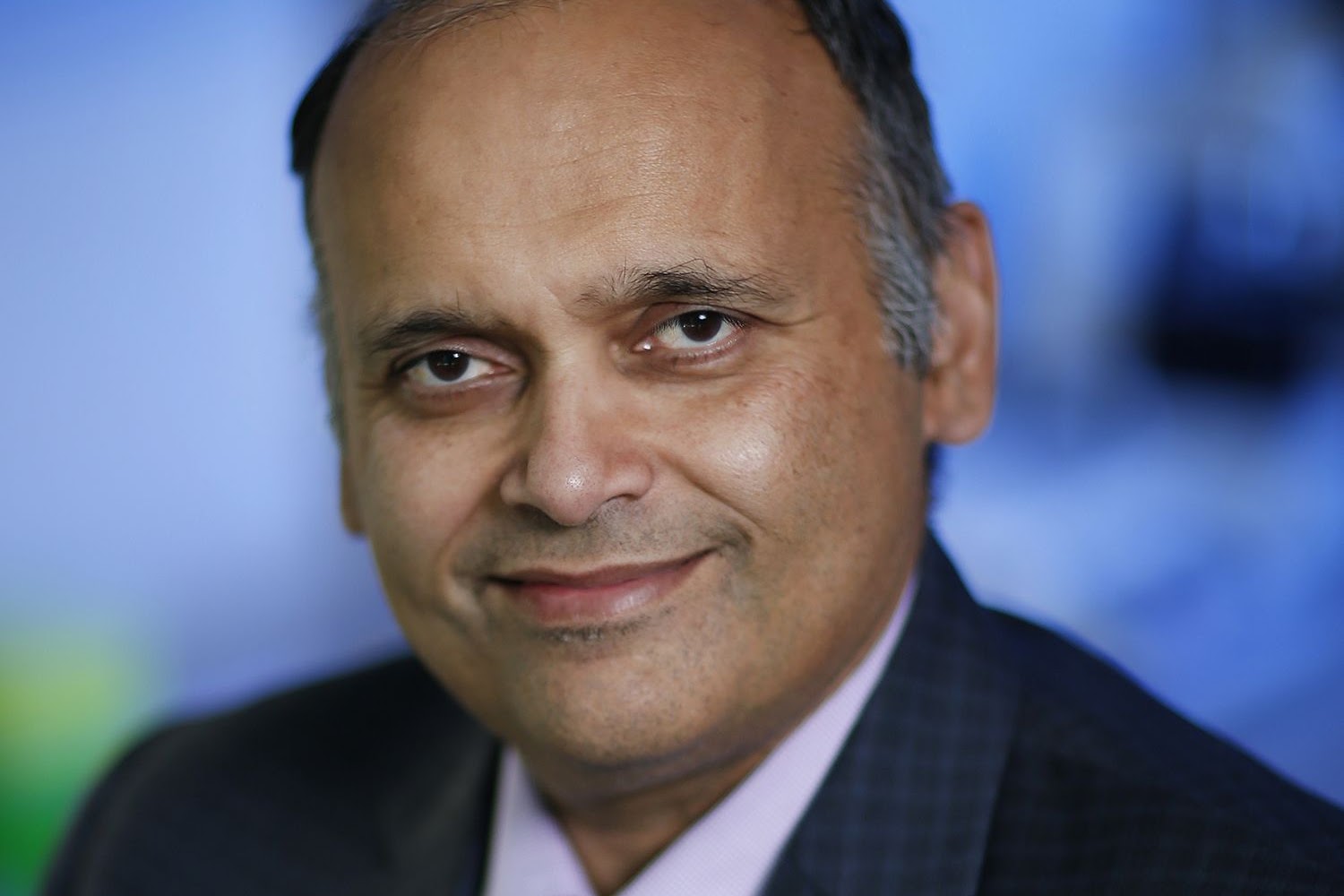Dr. Sunil Sharma: Renowned Oncologist

Dr. Sunil Sharma. Renowned Oncologist-Researcher
Written By Debra Gelbart
March 23, 2018
Investigating New Ways To Attack Pancreatic Cancer
Pancreatic cancer, much to the chagrin of doctors, researchers, patients and their family members, is rapidly becoming one of the deadliest cancers in the U.S. In 2017, the American Cancer Society anticipated that the fourth leading cause of death by cancer was pancreatic cancer for both men and women. Researchers and cancer-focused organizations are predicting that by 2025, pancreatic cancer may become either the leading or second most common cause of cancer death.
That’s why researchers like oncologist Sunil Sharma, M.D. are so dedicated to finding the causes of and risk factors for pancreatic cancer. “My interest is conducting translational research on novel therapies for cancer,” said Dr. Sharma, who is a professor and division director of Applied Cancer Research and Drug Discovery at the Translational Genomics Research Institute in Phoenix (TGen) and chief of Translational Oncology Research and Drug Discovery at HonorHealth Research Institute in Scottsdale.
Innovation is His Hallmark
The focus of his drug discovery program “is in epigenetic (inherited changes in gene function that don’t involve changes in the DNA sequence) and immune pathways,” Dr. Sharma said.
Dr. Sharma came to TGen and HonorHealth Research Institute in 2017. Before that, he was the deputy director of Huntsman Cancer Institute (HCI) in Salt Lake City. In that role, he was the co-leader of the Experimental Therapeutics Program to coordinate development of new therapeutics, including image-guided and targeted drug delivery systems. He was also the director of the Center for Investigational Therapeutics and an investigator at Huntsman Cancer Institute. “My research program focused on the development of chemical inhibitors of identified targets, the preparation of investigation pharmaceuticals from promising chemical inhibitors, and then development of these drugs for Phase I clinical trials,” he said.
“I like to think of it as Dr. Sharma being brought in to help TGen and HonorHealth win the World Series of pancreatic cancer research and treatment,” said Roger Magowitz, founder of the Seena Magowitz Foundation, which, in memory of Roger’s mother Seena—who died in 2001 from pancreatic cancer—has raised more than $12 million for pancreatic cancer research since 2002.
Understanding More About Risk Factors For Pancreatic Cancer
Dr. Sharma says there is a lot to learn generally, as well, about pancreas cancer. “We don’t know, for example, why KRAS gene mutation is so common in pancreas cancer,” he said. “We do know that smoking is a very high risk factor for this cancer, because it can cause precancerous changes that can lead to these mutations. So why is pancreas cancer increasing while smoking is declining? Could it be because additional lifestyle factors are at play? We’re trying to answer those questions.”
These efforts, of course, require funding. Dr. Sharma points out that the American Society of Clinical Oncology, the American Association for Cancer Research and the Seena Magowitz Foundation, among others, all have “marshaled resources against pancreas cancer. This is not an easy problem to solve and I appreciate the real approach to teamwork that is here in the Phoenix area.” He said that Dr. Daniel Von Hoff, the nation’s leading pancreatic cancer researcher based at HonorHealth and TGen, has been able to put together a “consortium of donors, scientists, clinicians and patient advocates to advance early detection and treatment of this disease. The problem is acute and intense, but—thanks to the amazing dedication and generosity of the people determined to beat a most insidious cancer—we really do have a very good chance of making a major difference in the lives of pancreatic cancer patients.”
What Are The Pancreatic Cancer Risk Factors?
